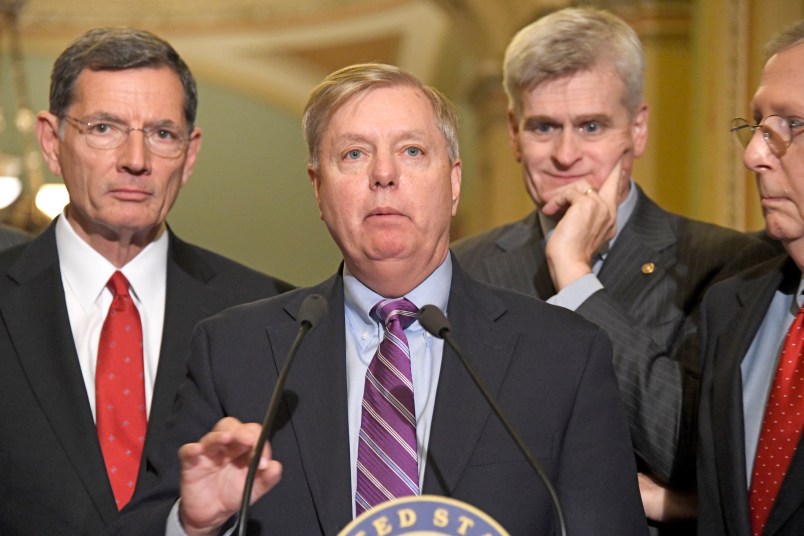A new report from the Brookings Institute estimates that 21 million people will lose their health insurance by 2026 under Senate Republicans’ latest bill to repeal the Affordable Care Act. The report cautions that it’s a very conservative estimate that doesn’t take into account the bill’s per-capita Medicaid caps and the individual market turmoil the plan would likely create. The true number of uninsured people, the authors note, is likely much higher.
Because the Graham-Cassidy bill would repeal Obamacare’s individual and employer mandates, but retain the rule requiring insurers to cover everyone regardless of their health status, Brookings expects that only sick people who need insurance will purchase it, driving the price sky high for them and everyone else left in the shrinking risk pool. Those high prices will price many people out of the market entirely.

After 2020, the bill would also sharply cut back federal funding for states that expanded Medicaid, gutting some state budgets by tens of billions of dollars.
“Some states might elect to begin the process of winding down their Medicaid expansion prior to 2020, which could also add to coverage losses during this period,” the report noted.
Brookings also notes that there is nothing in the bill to prevent states from spending the federal block grants that used to be their Medicaid and ACA marketplace budgets for completely unrelated purposes, such as cutting taxes.
After 2026, the losses would become far more severe, with more than 30 million people losing insurance “because of the additional changes to the Medicaid program under this legislation.”











Well, Donnie has revivified much of the Nixon administration, so why not firebomb Brookings?
The headline should reflect the upper bound, long-term estimate.
A lot of people are covered by family plans. Do their estimates take that into consideration?
Is it 30,000,000 accounts, and 30,000,000 x 3 people?
No surprises here, I guess. One thing in this discussion that I think in part explains the divide between repubs and Dems on this issue is the use of their verb ‘to lose’. While Dems see millions ‘losing’ coverage, the repubs see millions having the choice whether or not to purchase coverage - and exercising that choice accordingly. So depending on your political persuasion, millions ‘losing’ coverage can look like success or failure.
There’s a strange mirror between Repub and dem positions on healthcare. With broad strokes, repubs are obsessed with preserving life at all costs for the first few months from conception, while Dems are obsessed with extending life at all costs